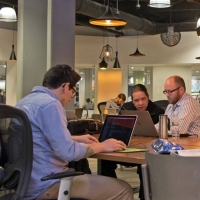January 25, 2023
Half of tech workers bracing themselves for layoffs, but fears may be unfounded
 Tech workers are pre-empting layoffs in 2023 and taking steps to protect their careers, according to a new poll from CWJobs. The survey – carried out among 2,000 UK tech workers – revealed more than half (53 percent) are pre-emptively applying for new jobs in case of redundancies at their firm. The research suggests that London tech workers feel at most risk, with nearly two thirds (63 percent) pre-emptively applying for a new job in case of layoffs – the highest out of any region. Young people are also more likely to make sure they have a Plan B in place, with 62 percent of 18-24-year-old tech workers actively applying for new jobs in case they are laid off, compared to 24 percent of those aged 55+. More →
Tech workers are pre-empting layoffs in 2023 and taking steps to protect their careers, according to a new poll from CWJobs. The survey – carried out among 2,000 UK tech workers – revealed more than half (53 percent) are pre-emptively applying for new jobs in case of redundancies at their firm. The research suggests that London tech workers feel at most risk, with nearly two thirds (63 percent) pre-emptively applying for a new job in case of layoffs – the highest out of any region. Young people are also more likely to make sure they have a Plan B in place, with 62 percent of 18-24-year-old tech workers actively applying for new jobs in case they are laid off, compared to 24 percent of those aged 55+. More →



































December 22, 2022
How businesses can support employee wellbeing over a difficult festive period
by Louise Aston • Comment, Wellbeing